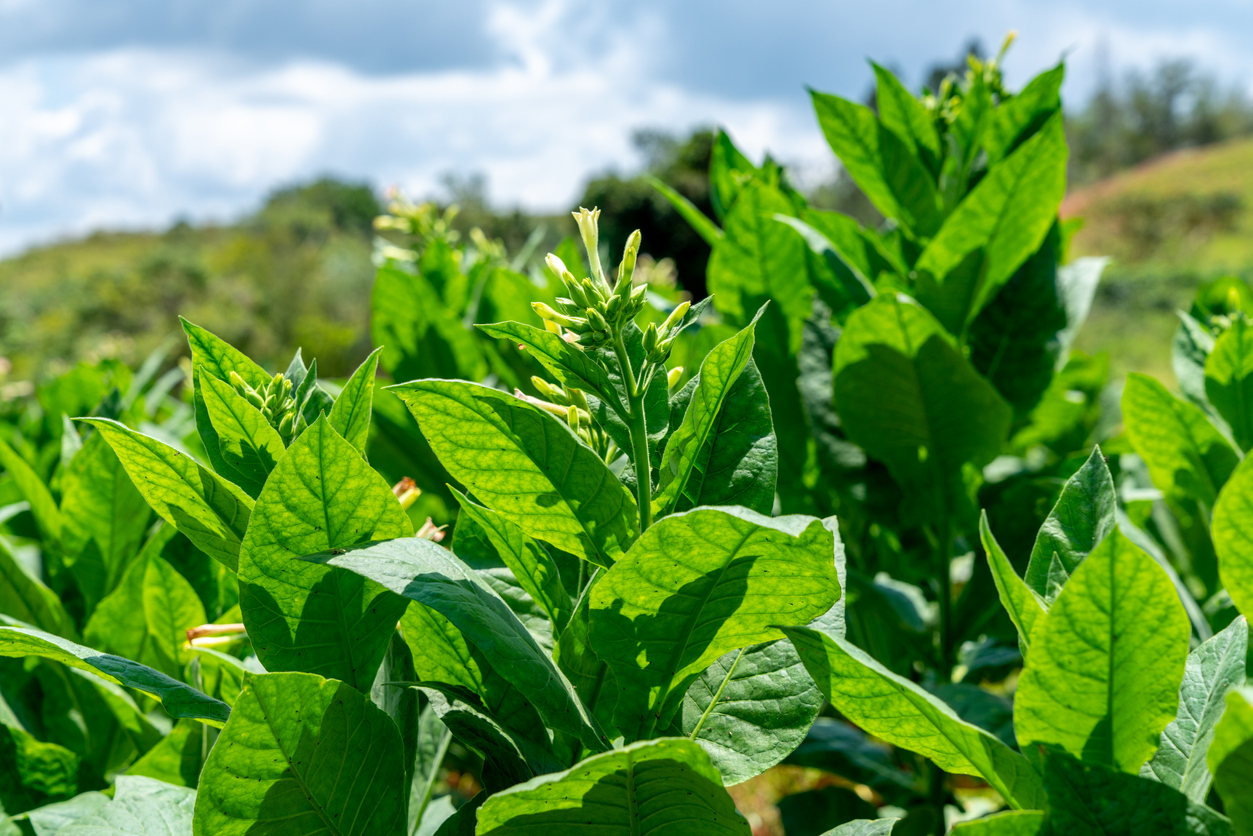
High-oleic Tobacco Seed Oil for Bio-diesel Produced Using CRISPR-Cas9
August 25, 2021| |
Researchers at Hebei University of Engineering and Sichuan University in China used CRISPR-Cas9 to boost the oleic acid content in tobacco oil. This breakthrough could help improve the properties of bio-diesel derived from tobacco. The results are published in BMC Plant Biology.
Tobacco seed oil is a suitable feedstock for bio-diesel production. However, this seed oil is susceptible to oxidation because of its high linoleic acid content. FAD2 desaturates oleic acid into linoleic acid in a specific portion of the cell. Previous studies have shown that suppression of the FAD2 gene in tobacco could lead to an increase in oleic acid content. Thus, the researchers identified the FAD2 genes in tobacco and characterized them. Seed type FAD2 genes were knocked out in tobacco plants using CRISPR-Cas9. The edited plants exhibited a significant increase of oleic acid content from 11% to over 79%, while linoleic acid decreased from 72 to 7%. The fatty acid composition of the leaf remained unaffected.
Based on the results, CRISPR-Cas9 could be a rapid and effective tool in tobacco seed lipid engineering research.
Read the research article in BMC Plant Biology.
| |
You might also like:
- COVID-19 Vaccine Development Using New, Fast-Growing Tobacco Plant Technology
- GM Approval Database: Tobacco
- Biotechnology for Green Energy: Biofuels
Biotech Updates is a weekly newsletter of ISAAA, a not-for-profit organization. It is distributed for free to over 22,000 subscribers worldwide to inform them about the key developments in biosciences, especially in biotechnology. Your support will help us in our mission to feed the world with knowledge. You can help by donating as little as $10.
-
See more articles:
-
News from Around the World
- The Impact of Gene Technology in Animal Agriculture and Food Production
- Texas A&M Researchers Engineer Good Bacteria to Aid in Combating Disease
- Technology Developers Share Commercialization Experiences with Filipino Scientists
- NTU Researchers Identify How Xanthomonas Bacteria Infect Plants
- India Eases Rules for Import of GM Soya Cake, Benefits Farmers
- European Commission Authorizes 10 GM Crops for Food and Feed
- UK Report Compares EU Approaches on Food Safety Regulation of Novel Foods and GMOs with Other Countries
-
Research Highlights
- Plant Immune Sensors Found to Navigate Against Invading Microbes Inside Plant Cells
-
Plant
- MHLW Japan Close to Commercial Approval of the First Genome-edited Fish
- Coalition of NGOs Outline Principles for Responsible Governance of Gene Editing
- Study Finds CRISPR Could Render Mosquitoes Infertile, Reducing Spread of Diseases
- High-oleic Tobacco Seed Oil for Bio-diesel Produced Using CRISPR-Cas9
-
Read the latest: - Biotech Updates (February 18, 2026)
- Gene Editing Supplement (January 28, 2026)
- Gene Drive Supplement (February 22, 2023)
-
Subscribe to BU: - Share
- Tweet

